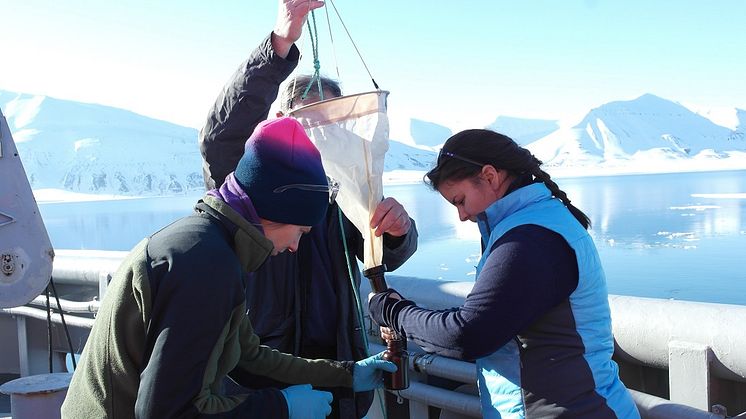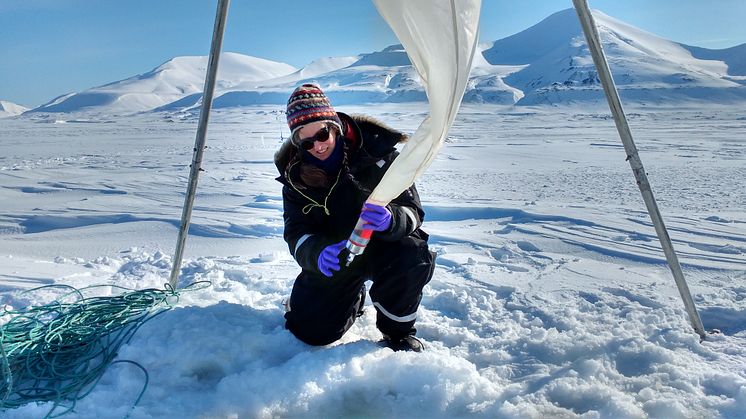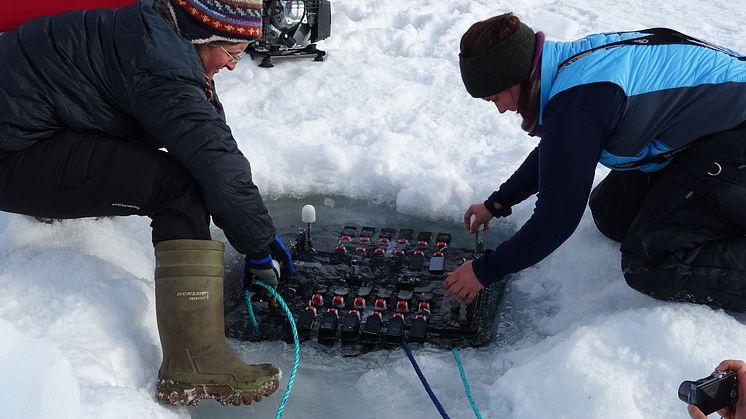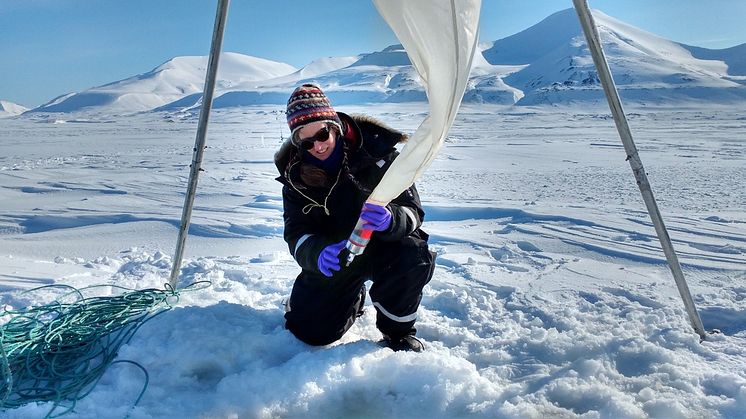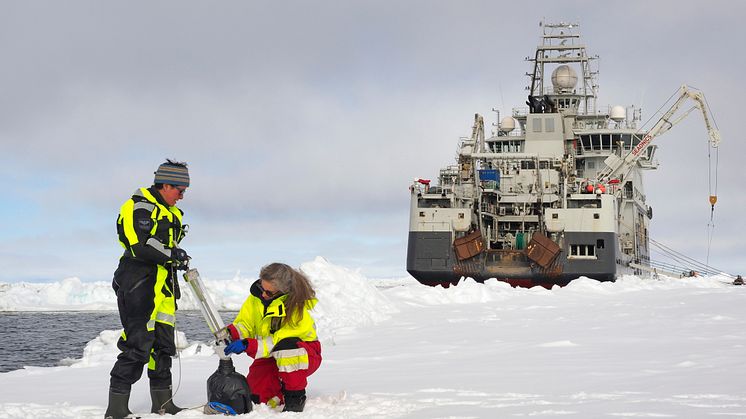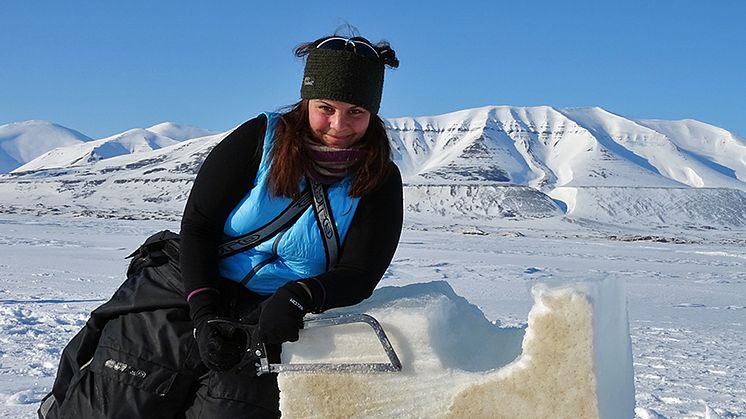
Nyhet -
Algae – the foundation of life: A FAABulous PhD dissertation
Due to all the ongoing and predicted climate changes it is obvious that primary productivity in the Arctic is going to change – but still, there is very little reliable information available on the subject. PhD candidate Ane Cecilie Kvernvik has studied single-celled sea ice algae in Svalbard as part of the FAABulous project led by Eva Leu from Akvaplan-niva.
Press release from UiT the Arctic University of Tromsø and the University Centre in Svalbard (UNIS) (15 March 2019).
Single-celled algae are a main source of food for aquatic life, and account for half of the photosynthetic activity on earth. The ice-covered seas of the Arctic have two major types of these primary producers; pelagic algae growing in open waters and sea ice algae growing within and on the underside of the sea ice. In spring, algae populations grow exponentially – a spectacle known as an algal bloom. Many Arctic marine organisms have adapted their life cycles to the prevailing sea ice regime and take advantage of both the sea ice and pelagic algae bloom. Needless to say, it is important to understand how, and to what extent, sea ice-based vs. pelagic primary production will change with respect to timing and quantity in a future Arctic.
About the thesis
This thesis investigates processes that drive changes in Arctic primary production; in particular, variations in light and nutrient levels as well as ocean acidification. The high Arctic is characterized by extreme seasonal change in light availability, and at the study sites used in this thesis (~78°N) the sun stays above the horizon for approximately four months (polar day), and below the horizon for another four months (polar night). Arctic pelagic algae have evolved pronounced mechanisms into being flexible with different light levels they encounter and also showed a high resilience towards variations in nutrient and CO2 levels. In contrast, the ability of sea ice algae to take advantage of increases in light was restricted to rather low ranges, and they exhibited much higher sensitivity towards high light stress compared to pelagic algae. Furthermore, they showed increased sensitivity towards high light stress when they were exposed to multiple stressors (i.e. nutrient depletion and ocean acidification). This suggests that sea ice algae will struggle more with adapting to the expected environmental changes in a future Arctic compared to pelagic algae.
Dissertation Ane Cecilie Kvernvik will defend her doctoral thesis entitled “Ecophysiological responses of sea ice algae and phytoplankton to a changing Arctic” on 29 March at 13:15. She will give a trial lecture the same day at 10:15 entitled “The role of phytoplankton in Arctic and global carbon budgets”. Both lectures will take place in Lassegrotta, UNIS/Svalbard Science Centre, Longyearbyen.
The committee consists of Dr Katherina Petrou, University of Technology Sydney, Australia (1. opponent), Dr Kasper Hancke, Norwegian Institute for Water Research (NIVA) (2. opponent), Professor Hans Christian Eilertsen, NFH (internal member and leader of the committee).
The thesis work has been supervised by Prof. Marit Reigstad (UiT the Arctic University of Norway), Eva Leu (Akvaplan-niva), and Prof. Tove Gabrielsen (the University of Agder and UNIS).
About the candidate
Ane Cecilie Kvernvik was born in Trondheim (Norway) in 1988. She quickly became fascinated by life in the ocean, and completed her master of science in Marine biology at NTNU, after which she started her PhD in Arctic marine biology.
Contact information:
E-mail: Anek@unis.no
Phone: +47 980 18 439
